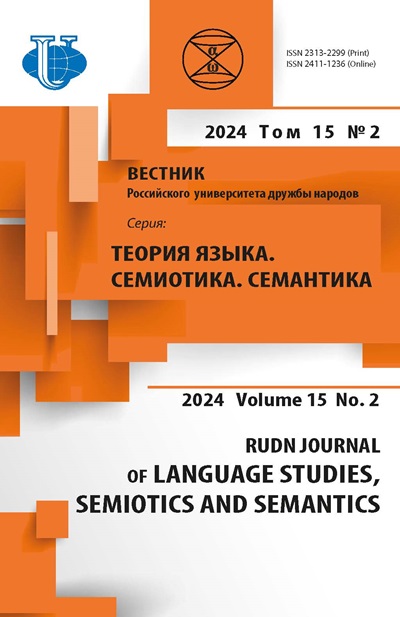Search
Issue
Title
Authors
|
Shkapenko T.M., Vaulina S.S. |
|
Zhanpeissova N.M., Kuzembayeva G.A., Maydangalieva Z.A. |
|
Sardarbek kyzy N., Krutikov D.A. |
|
Lian J., Lazareva O.V., Lazareva O.S. |
|
Filyasova Y.A. |
|
Maksimenko O.I. |
|
Privalova I.V., Petrova A.A. |
|
Belyakov M.V., Maksimenko O.I. |
|
Shestak L.A. |
|
Gurevich D.L. |
|
Perevolochanskaya S.N. |
|
Orlova T.G. |
|
Markelova T.V., Popkov (Glinsky) N.V. |
|
Klimenko G.V. |
|
Ivanov E.E. |
|
Perevolochanskaya S.N. |
|
Myaksheva O.V. |
|
Medvedev Y.Y. |
|
Novikov A.L., Novikova I.A. |
|
Aleksandrova O.I. |
|
Kornakova E.S. |
|
Kulchitskaya L.G. |
|
Ruzhitsky I.V. |
|
Na V., Kobylko J. |
|
Kirov E.F. |
|
Petrov A.V., Sembirceva V.P. |
|
Shapochkin D.l. |
|
Paymakova E.A. |
|
Grachyova O.A., Kopylova P.A. |
|
Nelyubova N.Y., Dugalich N.M., Ershov V.I. |
|
Derdzakyan H.A. |
|
Baturina E.N. |
|
Orlova T.G., Kolosova A.A., Medvedev Y.S., Barov S.A. |
|
Astvatsatryan M.G. |
|
Faal-Hamedanchi M. |
|
Lomakina O.V. |
|
Moskvicheva S.A. |
|
Markelova T.V., Novikova M.L. |
|
Mamontov A.S., Stolyarova A.G. |
|
Perfilieva N.V., Hu P. |
|
Kostromin A.B. |
|
Denisenko V.N. |
|
Maslova V.A. |
|
Timofeev S.E. |
|
Zarytovskaya V.N. |
|
Zakirova Y.A. |
|
Ganapiyeva G.-. |
|
Kikhney L.G. |
|
Tsibizova O.V., Galankina I.I. |
|
Lunkova L.N., Bukina L.M. |
|
Chigasheva M.A. |
|
Bezkorovaynaya G.T. |
|
Tuzova E.I. |
|
Orlova T.G. |
|
Khimich G.A. |
|
Bochkarev A.E. |
|
Filyasova Y.A. |
|
Denisenko V.N., Kalinina N.S. |
|
Kryukova I.V. |
|
Semenova S.N. |
|
Dubova M.A., Chernova L.A. |
|
Semenkova L.A. |
|
Antonova N.A. |
|
Alexandrova O.I. |
|
Kolysheva O.N. |
|
Shliakhova G.I. |
|
Nagzibekova M.B., Khassanova S.R. |
|
Baghdasaryan V.F. |
|
Kondranenko M.M. |
|
Chizh N.P. |
|
Kim N.D. |
|
Chernyakova Y.S. |
|
Novikov A.L., Novikova I.A. |
|
Shaposhnikova I.V. |
|
Novikov A.L., Novikova I.A. |
|
Trufanova I.V. |
|
Gamov A.N. |
|
Paizbekova A.D. |
|
Semenov A.L., Ershov V.I. |
|
Samoylova S.P. |
|
Orlova T.G., Nikulina E.F. |
|
Orlova T.G. |
|
Vasileva A.A. |
|
Zimareva O.L., Pesina S.A. |
|
Feliksov S.V. |
|
Fedulova M.N. |
|
Tuzova E.I. |
|
Valentinova O.I. |
|
Orlova T.G., Nikulina E.F. |
|
Kazieva A.M., Chevel E.A. |
|
Li Chunrong -. |
1 - 91 of 91 Items
Search tips:
- Search terms are case-insensitive
- Common words are ignored
- By default only articles containing all terms in the query are returned (i.e., AND is implied)
- Combine multiple words with OR to find articles containing either term; e.g., education OR research
- Use parentheses to create more complex queries; e.g., archive ((journal OR conference) NOT theses)
- Search for an exact phrase by putting it in quotes; e.g., "open access publishing"
- Exclude a word by prefixing it with - or NOT; e.g. online -politics or online NOT politics
- Use * in a term as a wildcard to match any sequence of characters; e.g., soci* morality would match documents containing "sociological" or "societal"









